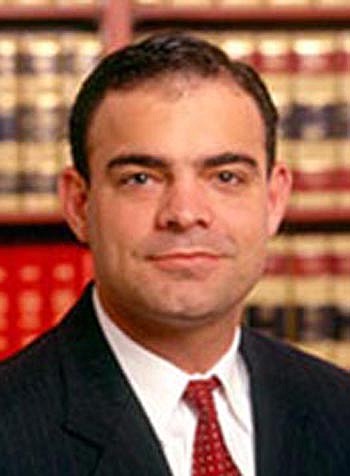
Lawyers from the 4th Judicial Circuit have long prided themselves over this circuit's reputation for professionalism and civility. But when we refer to professionalism and civility, what rules apply?
The Rules of Professional Conduct that govern the actions of all Florida Bar members are codified in Rule 4 of the rules regulating The Florida Bar.
The preamble of the conduct includes a number of basic requirements, in particular, "(a) lawyer's conduct should conform to the requirements of the law, both in professional service to clients and in the lawyer's business and personal affairs. A lawyer should use the law's procedures only for legitimate purposes and not to harass or intimidate others. A lawyer should demonstrate respect for the legal system and for those who serve it, including judges, other lawyers, and public officials."
The preamble also provides that, "(m)any of the lawyer's professional responsibilities are prescribed in the Rules of Professional Conduct, and in substantive and procedural law. A lawyer is also guided by personal conscience and the approbation of his peers."
This comment recognizes that there cannot be a rule written to address every circumstance. Good, honest and moral judgment must be applied at times.
Ultimately, the "shoulds" and "shalls" contained in the conduct do not define civility, but tend to address issues of client confidence, govern the business relationship between lawyer and client, conflicts of interest and candor to other counsel and the court.
The concept of professionalism and, in particular, civility, proceeds much further than the conduct.
For many years, a joint committee of the Trial Lawyers Section of The Florida Bar and the Conferences of Circuit and County Court Judges has published a "Handbook on Discovery Practice." The handbook was developed to address problems that arise in the day-to-day practice of law during the discovery phase of litigation.
Discovery abuses and related acrimony caused by inappropriate discovery conduct are sources of frustration to many judges and advocates. Recognizing the value of this resource, the 4th Circuit adopted the handbook by administrative order.
Each of the judges in the 4th Circuit also displays a plaque in their office or chambers that provides, "Professionalism and Civility, Anything Less Will Not Be Tolerated."
But, again, what is civility? There is no rulebook detailing what actions constitute "civility."
The 6th Edition of Black's Law Dictionary, which I have had since law school, does not define civility.
A simple Internet search, however, provides a number of definitions such as politeness, courteous behavior in speech and polite remarks used in formal conversation.
Notably, each of these examples involves some form of communication, the hallmark of a lawyer. Whether communicating with one's client to provide legal advice, corresponding with opposing counsel or the court when advocating on behalf of a client, "communication" is what we do.
Despite the 4th Circuit's admirable reputation, too often lawyers and judges in North Florida face the challenge of incivility.
Our judges are called upon to resolve very serious disputes in highly charged and emotional circumstances. Moreover, many are concerned that instances of incivility and lack of professional conduct are on the rise.
There are many causes for increased incivility.
Some cite a change in our profession, from a time when lawyers coming out of school were associated with a law firm, judicial clerkships or other employment where training continued after school; to now, when a rising number of graduates are unable to find employment and are forced to hang their own solo shingle or band together with other new lawyers to start firms.
The change in culture also is undoubtedly the product of the increase in the number of lawyers in our society.
The Florida Bar is fast approaching 100,000 members. The 4th Circuit has in excess of 3,800 lawyers. The interaction between the ever-increasing Bar membership simply provides more opportunity for less-than-civil communication.
In addition, the modes of communication have changed.
All too often lawyers, like everyone else in society, communicate through email and texting. These forms of communication promote quick responses that can lack a necessary measure of care and thoughtfulness.
Civility, in part, is borne out of respect. Respect is generally a quality that has to be earned.
The smaller and more closely knit a group is, the greater civility one typically finds. Local Bar participation is a critical component of ensuring the continued civil and professional environment mandated by The Florida Bar. This mandate is borne out of the recognition, as found in the preamble of the RPCs, that: "Neglect of (professionalism) compromises the independence of the profession and the public interest that it serves."
The Florida Supreme Court has certainly noted this issue.
On July 11, the court issued an order requiring every Circuit to institute a professional panel to receive and, if possible, address, circumstances of unprofessional and uncivil behavior by members of the Bar. This order can be found at www.floridasupremecourt.org/decisions/2013/sc13-688.pdf.
The 4th Circuit has long maintained an informal process to address complaints from judges and attorneys about particular conduct from members of the local Bar.
The Supreme Court's rulingwill undoubtedly require and result in a more formalized process.
Stay tuned for more on this issue.